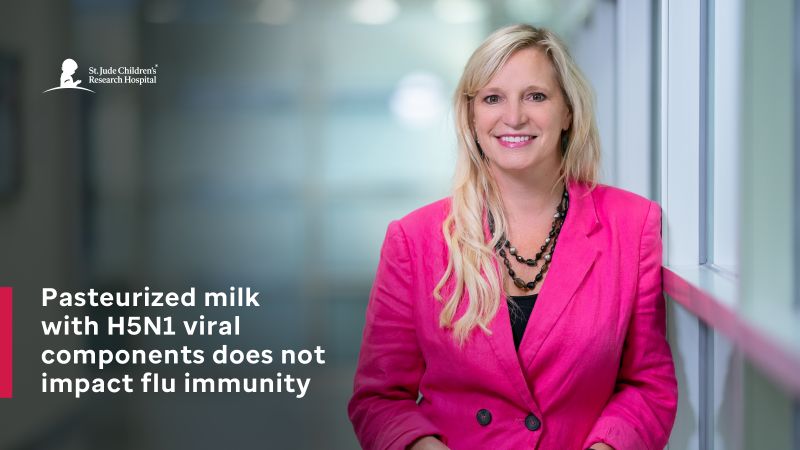St Jude Children’s Research Hospital shared a post on LinkedIn:
“Researchers at St Jude Children’s Research Hospital have found that inactive H5N1 influenza virus present in pasteurized milk poses minimal health risks and does not alter flu immunity.
This finding addresses growing concerns among the medical and scientific communities as the H5N1 influenza virus continues to infect dairy cows in the United States and viral components are detected in commercial milk.
The central issue investigated was whether repeated exposure to inactivated viral proteins and genetic material in pasteurized milk could teach the immune system to ignore these molecules, a process known as oral tolerance. Scientists worried this could increase susceptibility to future influenza infections if the immune system stopped recognizing viral components as threats.
The study showed no difference in disease progression or immune response between those exposed to contaminated milk and those who were not.
“We found that consuming pasteurized milk multiple times, even if it has inactivated H5N1 virus, poses minimal health risks, we observed no benefit or detriment to subsequent influenza infection.” – said Stacey Schultz-Cherry, PhD, of the St. Jude Department of Host-Microbe Interactions.
The findings also highlighted that unpasteurized H5N1-infected milk remains a significant health concern, causing high mortality in laboratory models. However, pre-existing immunity from seasonal influenza infection or vaccination provided complete protection against the virus. These results support the conclusion that current food safety protocols and vaccination practices are likely safeguarding human health from H5N1 in milk, though continued monitoring is warranted.

More posts featuring St Jude Children’s Research Hospital on OncoDaily.


